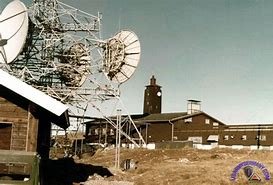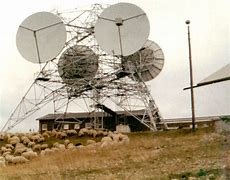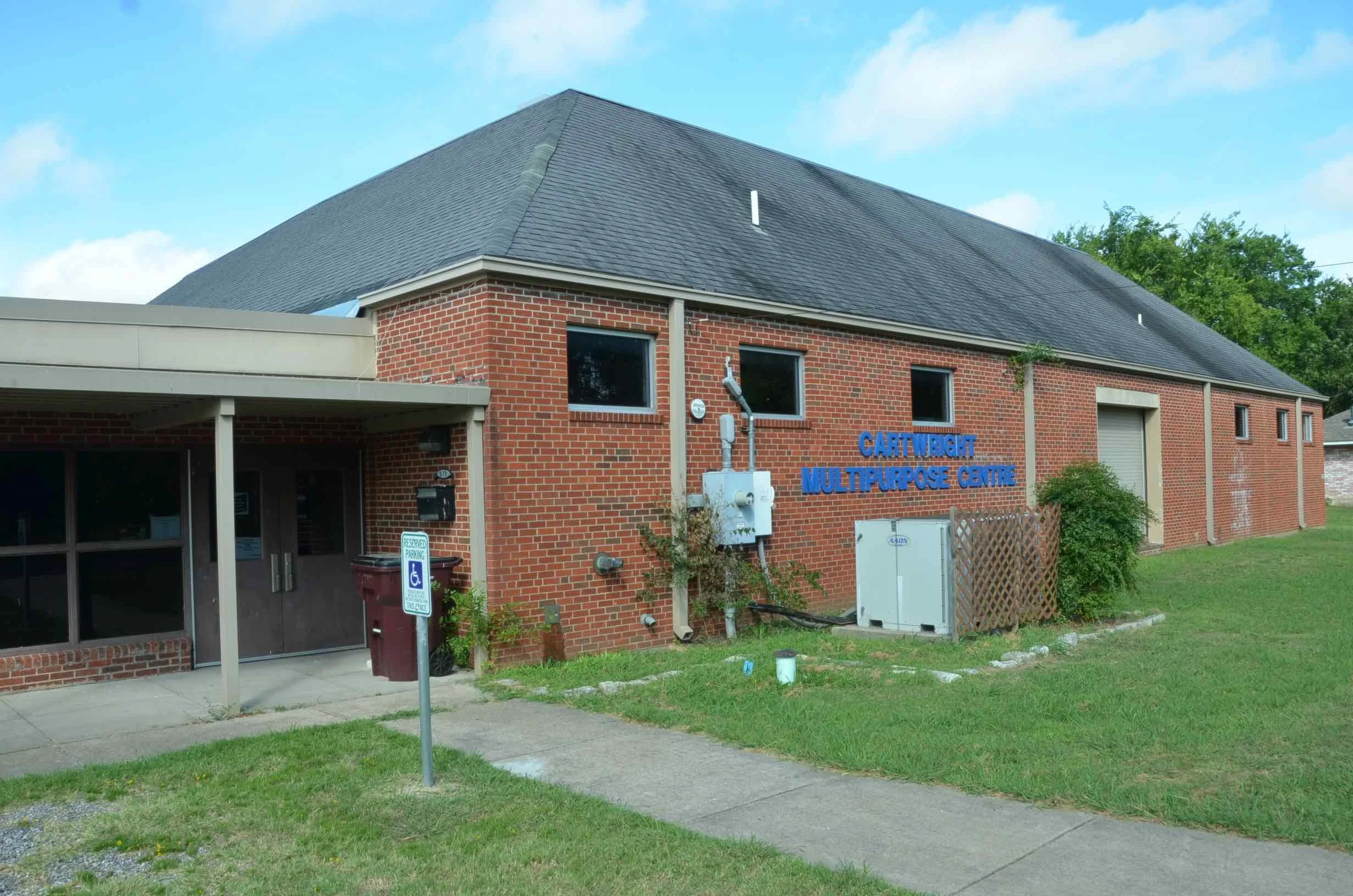Pat Wright
Pat Wright – U.S. Army (23-years), Wills Point, Texas
Pat was born in Bakers Clinic in Wills Point, Texas on January 30th, 1951. The building is still here but is no longer a hospital. “I was raised by my grandmother,” said Pat. My mother, Norma Booker, is 88 years old and is living in Dallas. Her grandmother’s name was Violet Wright and raised Pat since birth. I called her momma and my mother Naomi. I never knew for a long time that my grandmother wasn’t my mother. She lost her husband and two kids in a fire. He died a week before I was born. She always had a scar from third degree burns on her arm from saving two of her kids. My grandmother was a God-fearing woman and she raised me and my first cousin Deborah. Deborah and I were like sisters. My grandmother was famous in the neighborhood for her Tea cakes, or homemade cookies. It tasted like a sugar cookie. She has been gone since 1984, but she was the backbone of our family.
My mother had 14 kids and my Aunt had 15. I am the oldest of my mother’s kids and my cousin was the oldest in her family. Their names were Vanessa, Casandra, Coy, Ronnie, Jeremy, Audrie, Rex, Oletha, Vessy, Earl, Jimmy, James, Norvell, Vincent and Tabtha. (15) Mary Helen sister In Dallas the first seven I know like the back of my hand, I have to think about my younger siblings,” she laughs. I was closet to Vanessa and “Sap” (Casandra) because we were the three oldest. Casandra was so small I was told she could fit in a shoe box. My mother lived in Dallas and she would come down just about every weekend and visit with me and Deborah and brought gifts to us. I was too young to know what was going on so I just always thought my grandmother was my mother. She was a very loving and caring person. As a young girl I did a lot with the church in Christian Youth Fellowship. I became a Christian when I was 12 years old and made my mind up then that I wanted to serve the Lord,” Pat said smiling.
When Pat was a teenager she was very athletic. I was a good volleyball and softball player and I could run too. She played shortstop on the softball team and was a pretty good hitter
I wanted to stay at the Cartwright School but this was 1966 and the beginning of integration. I was transferred to Wills Point High and it was a struggle for my race and the white kids. It wasn’t a good time. I graduated from WPHS in 1969. When they told us, we were going to be integrated, I cried. I was looking forward to graduating from Cartwright because of the chorus club and being with my own people. I was sad that we had to go to the white school. There were three teachers at the school that really made it easy for me to transition to a white school. There was Mrs. Harris, the JP Ozelle Wilcox and Mrs. Ellis. We had a hard time that first year. 1965 was a tough year. Second year of high school was easier as people started accepting the change and realize, it is what it is. There were students that welcomed us and some didn’t, but that’s life,” she said.
“As a black person I have always been proud of who I am. I had a lot of white friends and after High School I moved to Dallas. There were no jobs in Wills Point and my sister Mary Helen was living in Dallas. She came to Wills Point and picked me up. My first job was like a Waffle House even though I never cooked in my life. There were a lot of older customers and I told them I was kind of new at this. It was the first time I learned how to flip an egg over easy,” she laughed. “It was right across from Southwestern Bell phone company where my sister worked.
I eventually got a job at Texas Instrument in Richardson. I worked as an alloy assembly and ball bundling. This was back when TI was making their own computer chips. I worked for about three years and got laid off. I got unemployment. Got hired back for another year and a half and got laid off a second time. I never did get to that 5-year period where they didn’t lay people off. This was around 1974-75. I started thinking about a career and retirement type of job. So, I thought about the military,” said Pat.
JOINING THE ARMY
“You don’t want to do that, it’s going to be kind of tough, my stepdad told me. He was in the Army and thought at 4 foot 11 I was too short for the military. That motivated me even more,” laughed Pat.
Pat once again went out on her own and talked to a recruiter. She told them all about her stepdad and asked them if she could join the Reserve first, to see if she would like it or not. “So, I got into the National Guard Reserve and signed up for three years and ended up staying twelve years. I was stationed at the Texas National Guard Armory at California Crossing in Dallas. I have always been grounded looking to the future and grateful to the Lord. I always wanted control of my own life,” Pat told me confidently. “I wasn’t rich, but this was a good way for me to travel the country. To join the military and see the world.” It was 1976 and she was ready to travel.
BOOT CAMP AND MOS
“My MOS was 31 November,” said Pat. “It meant I was a tactical circuit controller, or communications. Everybody was patched in like a phone company plugging into a receiving circuit board. I knew in getting into communications you could advance thru the ranks, especially financially. It is a field that is never going away. Working at TI with transistors I knew this would be a good MOS to get into. So, I picked that myself,” Pat said.
Pat went to Fort Jackson, South Carolina for eight weeks of boot camp. She is starting to travel now, at least out of the state of Texas. “When I got to boot, I thought I made the biggest mistake of my life,” she laughed. “They drove me, I guess because I was so short and I had a mouthful of gold teeth. He dogged me out, but it strengthened me. They had me doing push-ups every day in front of the troops. They tried to break me, but it didn’t work. I wasn’t going to be a quitter. When I graduated the D.I. said, “Wright, you are one of the best soldiers I have ever had. That made me feel proud,” smiled Pat. “It was almost like graduating from High School and getting my diploma.”
Pat also attended AIT School for sixteen weeks in at Ft. Gordon in Blythe, Georgia after Boot Camp. “I had to get a clearance to be in communications. I had to get a SECRET clearance, which is the highest you can get other than TOP SECRET. The classes were like going to college. I knew this was going to be my MOS in communications.” After graduation, Pat went back to Dallas and her old Army unit. She stayed in the Guard until 1988 when she decided to go full time Army.
FULL TIME IN THE ARMY NATIONAL GUARD
Pat worked at a medical lab on Regal Row in Dallas while serving in the Guard on weekends and two-week drills during the summer. She went for 1 and 2-month reforger stints to places like Germany with the 52nd Signal Battalion. She did a lot of reforgeries during her twelve years inactive guard. Her 1st Sargant continued to encourage her to go active duty and finally convinced her to go full time for the Army.
“We were using the old TA3-12 communications equipment when I first got into the guard. Over time we switched to digital equipment from the old analog technology. This change over was one of the main reasons I went active duty. I knew they were going to need people for this changeover. I went to school to become an instructor. With my rank I was teaching Officers and Generals about the new digital technology. I taught a class called 31-Whiskey, it was called Mobile Subscriber Equipment, (MSE).
There were about twelve instructors including myself that were transitioned and sent from the analog to the digital age. We were trained at the Armory in Dallas by GTE in a four-week class. I then taught in the classroom and out in the field at Ft. Hood for six weeks. Once I finished the training in Ft. Hood I was sent back to Dallas and trained there. I trained from 1988 to about 1991,” said Pat. “It was fun going from the analog world to digital. I eventually had my own platoon and travelling to remote places to set up the communications for field operations. When there was a problem in the field I diagnosed it and sent my platoon out to repair the problem. I miss those days,” laughed Pat. “My nickname became, “LITTLE BITTY SARGE.” Pat was assigned to the advance parties setting up where you could use radio antennas.
When there was a communications set up in the field her unit would dispatch to set up communications and coms for the active Army units coming in. “I had the best soldiers to work with,” Pat said. “I just requested their honesty and would always have their backs. My Company Commander and 1st Sargant camped at my site more than they did the others,” smiled Pat. “My Node Center consisted of four radios, a switchboard and mobiles for the Commanders to ride out and use in their vehicles. We also had to setup the mess tent and porta potties. These were all done in the advance teams. We set up at Ft. Hood, Mineral Wells, Eagle Mountain Lake and a lot of different areas within the state. The Army was always training. We were training for Desert Storm deployments. We changed uniforms, trucks were changed to the camo color and everything. I was disappointed when I didn’t get deployed to the Middle East, I had to stay in the rear.”
For the next six years in the Army Pat was more of a platoon Sargant. Around 1994 or 95 she was promoted to E-7. Bosnia was the next military engagement and started ramping up and training to deploy once again. As Pat moved up in the ranks she started doing more paperwork within her Platoon getting them ready for deployment. There was more training getting the communications best qualified personal ready to deploy. Once again, she never travelled to a military hot spot, this time in Bosnia. I was the acting 1st Sargant for the Armory since my 1st Sargant was getting deployed. She had about 40-50 soldiers training under her in her MOS field. On October 4, 1999 Pat retired from the military. She had been in the Army for 23 years. She decided the military was getting too political and was ready to get out.
“I loved putting on that uniform and know I was serving my country. I went into the military voluntarily and was not drafted. I did it because I wanted to. I learned that if you believed in yourself you can do anything you want. It doesn’t matter your color or height. I have been independent all my life, but in the military, I learned discipline. I was in the military to do a job, and I did mine well.”
BALK SPRINGS NURSING HOME
When Pat got out of the military it was time to go back to civilian life. She went to work for Balk Springs Nursing home. “When I was about 17 my mother was working for a nursing home, and I like older people. I wanted to work in the hospitality field. When I told them about my military career they thought I was over qualified for that position. I was offered the job as their medical records person, taking care of medical needs and ordering supplies for the nursing home. She stayed there for about four years.
NEXT STOP, A TRUCK DRIVER
“I was driving down the highway with a friend one day and said, I wonder what it is like to drive an 18-wheeler? I came back and told my family I was going to truck driving school. I went to Tri State in Palmer Texas and got my CDL license. I told them if I can drive a standard shift I can drive one of these big rigs. They told me this is a whole lot more,” she laughed.
“I went to work for Werner Trucking Company in Lancaster, Texas. I had to have a trainer for the first month or two and then I got my own sleeper and started travelling all over the country. When you are travelling with two people in a sleeper, hygiene is very important. The trucker they stuck me with did ‘t like to shower as often as I did. I eventually got my own track and hit the 48 states.
Now, I was travelling all over the United States. I did not realize how beautiful our country was until I started driving around all the different states. I was travelling up to Portland, Oregon all thru the mountains. I saw mountains with ice on them for the first time, and that tripped me out. Going thru Tennessee and Virginia I saw places I never thought I would see. The more hours you drove the more money you got, so I liked to travel all over the country. I could drive eleven hours a day and then have to be in the sleeper the rest of the hours. I had everything I needed right in my sleeper truck. I had a CB and new a lot of other truckers up and down the roads. They were really helpful in telling me how to get to certain towns. My handle was the same as it was in the military, “Little Bitty Sarge,” Pat laughed. “I drove for Warner for about two years. My favorite state to travel was Virginia and Portland, Oregon. I didn’t like New York because they were not trucker friendly and California had too much traffic. I did get pulled over one time in Portland and the State Trooper got out and looked at me and said, little ole you is driving this truck? I said yes sir, and he said, do you see your speed? I said sir, I am a new driver. That got me out of a lot of trouble,” she started laughing out loud.
Pat left Werner and went out on her own with an independent company driving for Fed Ex. It paid her more money also. She stayed with them for another year and a half. A total of three and a half years in the big rigs. After all the years in the Army and driving the big rigs, Pat eventually made it back to work for Texas Instruments and in May of 2014 she retired from TI. At that point Pat did everything she wanted to do in life except fly in an airplane. I wanted to see if I could fly an airplane. That is still on my bucket list.”
AFTER RETIREMENT
“I have always wanted to play the piano, so I am learning to play a song on my keyboard. I loved to sing growing up in church and my grandmother always had me singing solo in church.
Jesus Keep Me Near the Cross and Blessed Insurance, has always been two of my favorite songs. My grandmother always loved Jesus, Keep Me Near the Cross. My goal is to one day play a song in church and sing,” she smiled.
“The mind is a terrible thing to waste. I do some caretaking part time in elderly homes and enjoy doing that. I sit for a retired school teacher couple times a week. I enjoy that. I have been doing home healthcare since I retired in 2014.
Two items on my bucket list is to get the Cartwright Centre opened again be able to sing my song in my church. Cartwright is my priority. To help the kids in my community.
I went to school at Cartwright from the 1st to thru the eighth grade. It is an historical school in our community and I told Mrs. Corliss Brown I would volunteer and help her get it up and running again. She offered me to help her with the activities director and she said I was disciplined in the military and felt I could help her.”
The Cartwright School in Wills Point was the first school in the town and was called the “colored school.” The name was changed to the former Principal Robert L. Cartwright, Sr. He was principal at the Wills Point Colored School from 1929-1943.
The air compressor on the unit has gone out and they are in the process of raising the $2,600. for repairs. “I know I can lease out the Cartwright Centre. We just need the air conditioning for the gym.”
Pat Wright, thank you for your 23-year career service to our country while serving in the United States Army National Guard. Your courage and sacrifices will not be forgotten.
NOTE: Meet other Veterans from Van Zandt County by going to the top of www.vzcm webpage and click on MEET OUR VETERANS and click one of the (5) branches of services and the veterans last name first and click to read.
“Every Veteran has a story to tell.” Phil Smith
GOD BLESS OUR VETERANS AND GOD BLESS AMERICA
(ALL photos on this Facebook page are ©2020, Phil Smith and Van Zandt County Veterans Memorial. NO unauthorized use without permission) All Rights Reserved.


















